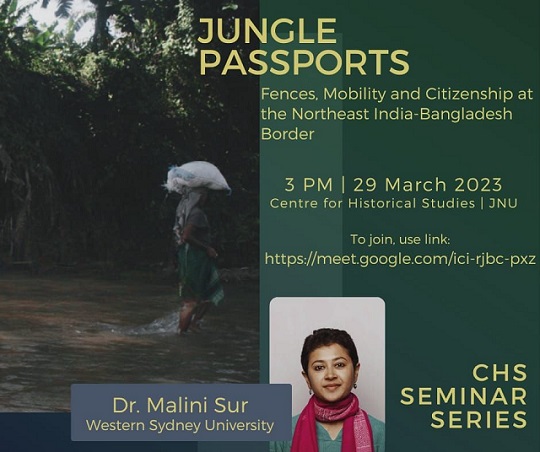
Google Meet Link Info: https://meet.google.com/ici-rjbc-pxz
Abstract: Since the nineteenth century, a succession of states has classified the inhabitants of what are now the borderlands of Northeast India and Bangladesh as Muslim "frontier peasants", "savage mountaineers", and Christian "ethnic minorities". Often suspected to be disloyal subjects, spies, and traitors, these people struggled to secure shifting land, gain access to rice harvests, and smuggle the cattle and garments upon which their livelihoods depended. This paper will explore these aspects against a background of violence, scarcity, and India's construction of one of the world's longest and most highly militarized border fences. Recasting the established notions of citizenship and mobility along violent borders, the paper will show how the division of sovereignties and distinct regimes of mobility and citizenship push undocumented people to undertake perilous journeys across previously unrecognized borders on an everyday basis.
Malini Sur is a socio-cultural anthropologist with research interests in India, Bangladesh, and Australia. Her book was awarded the President’s Book Prize from the South Asian Studies Association of Australia, received an 'Honourable Mention’ for the Bernard S. Cohn Prize, and was selected for the Choice Outstanding Academic Titles of 2022.